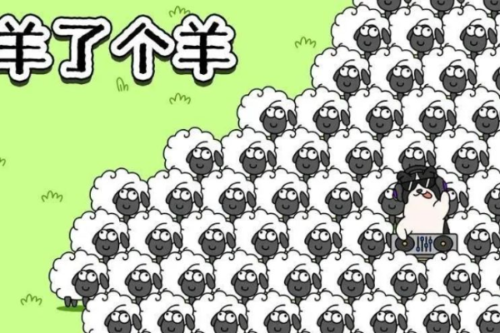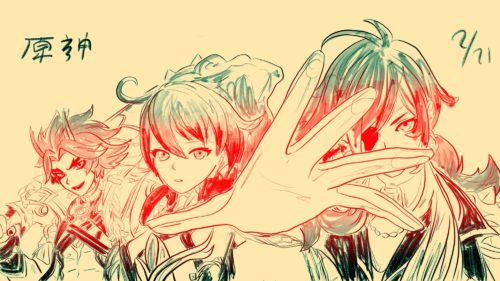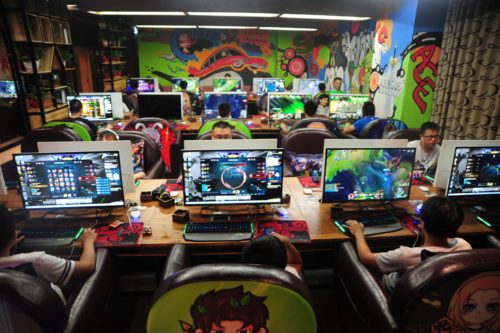Love and Producer, the Chinese mobile game that has millions of women hooked
Love and Producer, the Chinese mobile game that has millions of women hooked

Love and Producer 恋与制作人, a dating simulation game for mobile that launched last month, has become a sensation among young women in China. According to GameLook, a Chinese gaming news website, the game made roughly 20 million yuan ($3.1 million) on its peak day and now has more than 4 million daily active users. Since its launch in December 2017, the game has been downloaded 7 million times, with females representing 90 percent of the downloads. Its January monthly revenue is expected to surpass 200 million yuan ($31 million), with a considerable chance of hitting 300 million yuan ($47 million).
A typical dating simulator, Love and Producer lets users develop “romantic” relationships with a cast of anime boys of various backgrounds and personalities. It falls into the decades-old genre of otome game, literally “maiden game,” which originated in Japan in 1994, defined as a female-targeted video game driven by plots where the ultimate goal for the player is to achieve a happy ending with the male character she craves.

Two elements, an engaging story and some charismatic characters, are key to every otome game’s success. And Love and Producer is no exception.
“I am elated to unlock new plots every morning when the storyline gets updated,” a female player told me, adding that the game’s appeal largely derives from its four principal characters, who are “considerate, sweet, and heartwarming.”
Those four characters are:
Li Zeyan 李泽言, CEO of an enterprise: “No matter past or future, I want your time to only stop for me.” (不管过去还是未来,我要你的时间只为我停止)
Xu Mo 许墨, a genius scientist: “Love will induce you into traps. Now…you still have time to escape.” (感情会将人诱导入陷阱。现在…你还来得及逃走)
Bai Qi 白起, a special policeman: I will never leave you in danger. As long as you’re in the wind, I’ll find you. (我不会让你陷入危险,只要你在风里,我就能找到你)
Zhou Qiluo 周棋洛, a superstar: For you, I need to be in a higher place. (为了你,我要站在更高的地方)
While many aspects of the game may seem cringeworthy to some, it has no doubt grabbed many women’s hearts — as well as their wallets. On January 13, which is game character Li Zeyan’s birthday, a devoted legion of Li’s self-proclaimed girlfriends rented a gigantic digital billboard in Shenzhen to send wishes to their virtual boyfriend.
“Happy birthday, Li Zeyan! We bought this with your black card, so don’t be surprised!” the text on the side of the skyscraper reads, in reference to one of Li’s sayings in the game: “Take my black card and buy whatever you want.” (Much of his charm derives from his generosity toward his lover.)
Paper Studio, the Suzhou-based company behind the smash hit, is in fact experienced when it comes to targeting female players. In 2015 it created Miracle Nikki 奇迹暖暖, an outfit-changing mobile game whose immense triumph in generating profit proved that Chinese women, contrary to popular misconception, also play online games. A TV show adapted from Miracle Nikki reportedly began filming last year, and the popularity of Love and Producer has also ignited discussions of its potential derivatives.
Though the massive appeal of Love and Producer might seem harmless at first glance, a columnist on the website Jiemian 界面 argues that it in large part reflects a flawed attitude toward dating among both men and women in real life. “The simplification, consumptionism, and hypocrisy rooted in these dating simulators are a product of this era’s lovelessness,” the author writes, adding that Love and Producer at its essence is no different from Japanese “gal games” where only “cute” girls, by strict definition, are designed to be pursued by male players. “Stereotyping is not absent in female-dominated video games. In other words, fast food-style consumerism lets women impose onto males the various kinds of demands that were once applied to them. It conveys a message that men of the underclass are undatable.”
I downloaded the game and played it, for the sake of research. It begins with a memory of a car accident when the main character (me) was five years old — I was saved by a nameless boy who disappeared, and whose memory has haunted me for 22 years. As the producer of a dying TV show, I have to find a “superstar” for the season finale. And so it begins — the game gives me scenarios, and my decisions will lead me into different storylines. It’s simple and easy to play, and also fast-paced, with a compelling plot. I get its appeal. More than 6 million women do too, and as much as I hate to admit it — I just might become part of this statistic.













